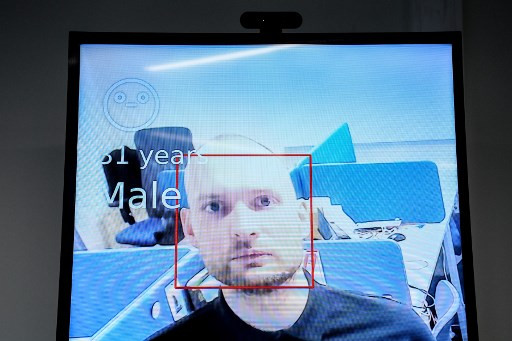Popular Reads
Top Results
Can't find what you're looking for?
View all search resultsPopular Reads
Top Results
Can't find what you're looking for?
View all search resultsUK police use of facial recognition ruled unlawful
Change text size
Gift Premium Articles
to Anyone
 Nikolai Grunin, an employee at NtechLab, the company that won the city's tender to supply the facial recognition technology, demonstrates the technology during an interview with AFP on Feb. 5, 2020.The use of facial recognition technology by a British police force was ruled unlawful on Tuesday by the Court of Appeal in a case brought by a civil rights campaigner. (AFP/Kirill Kudryatsev )
Nikolai Grunin, an employee at NtechLab, the company that won the city's tender to supply the facial recognition technology, demonstrates the technology during an interview with AFP on Feb. 5, 2020.The use of facial recognition technology by a British police force was ruled unlawful on Tuesday by the Court of Appeal in a case brought by a civil rights campaigner. (AFP/Kirill Kudryatsev )
T
he use of facial recognition technology by a British police force was ruled unlawful on Tuesday by the Court of Appeal in a case brought by a civil rights campaigner.
Ed Bridges had challenged South Wales Police's use of the technology after his face was scanned on two separate occasions in Cardiff -- once while Christmas shopping in 2017 and at an anti-arms protest a year later.
He said the technology had caused him "distress".
The judges backed his appeal and ruled there was no clear guidance on where AFR Locate -- the technology being trialed by South Wales Police -- could be used and who could be put on a watchlist.
It also ruled a data protection impact assessment of the technology was deficient and that South Wales Police did not take reasonable steps to find out if the software had a racial or gender bias.
The court ruled that "too much discretion is currently left to individual police officers".
Bridges' case had initially been dismissed at London's High Court in September which concluded use of the technology was not unlawful, but he appealed that verdict.
Following his victory on Tuesday, Bridges said he was "delighted" and called the technology a "discriminatory mass surveillance tool".
South Wales Police said they would not appeal the verdict.
"I am confident this is a judgment that we can work with," said South Wales Police Chief Constable Matt Jukes.
Civil rights group Liberty, who had supported Bridges in his court case, described the ruling as "a major victory".









